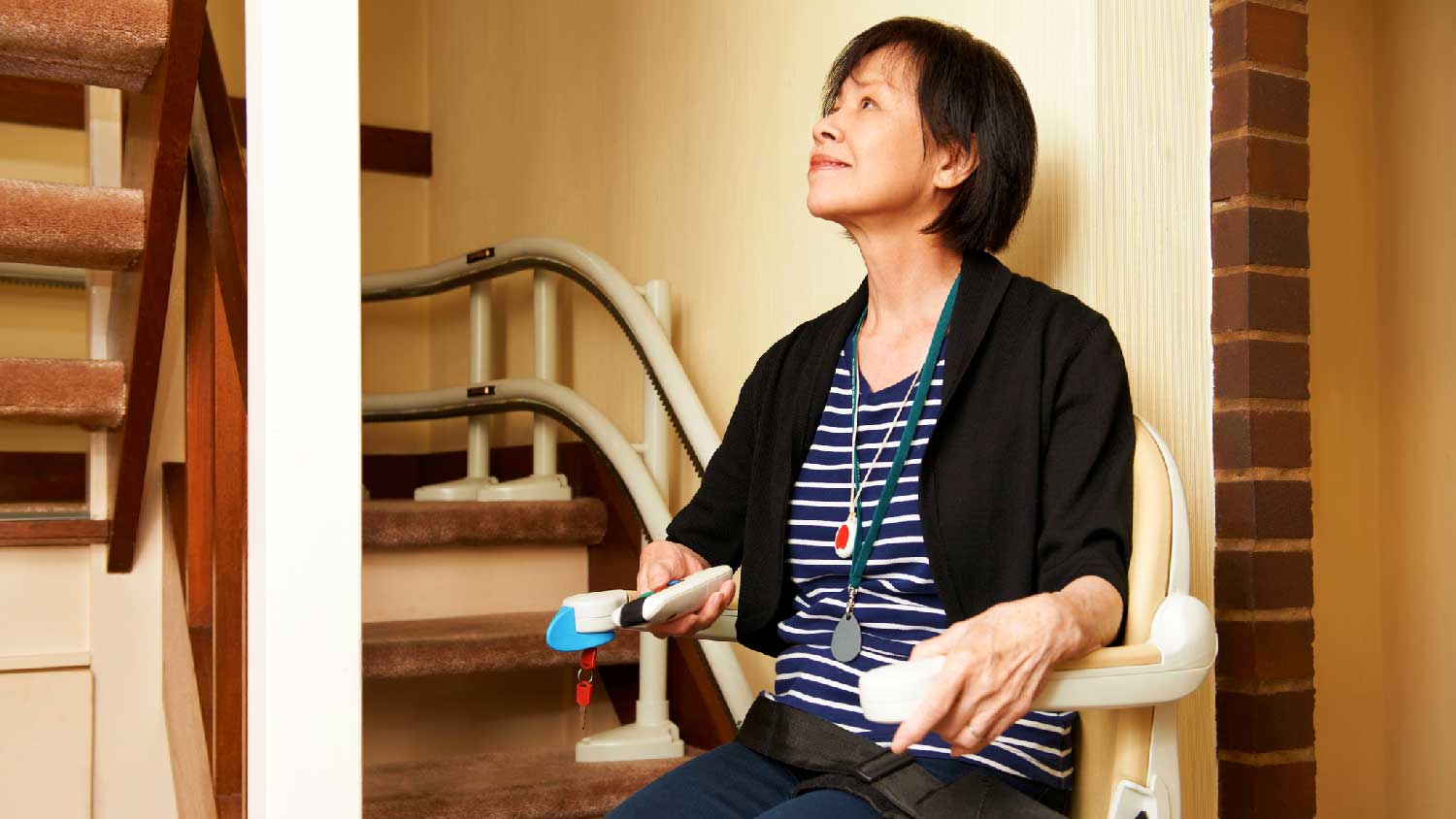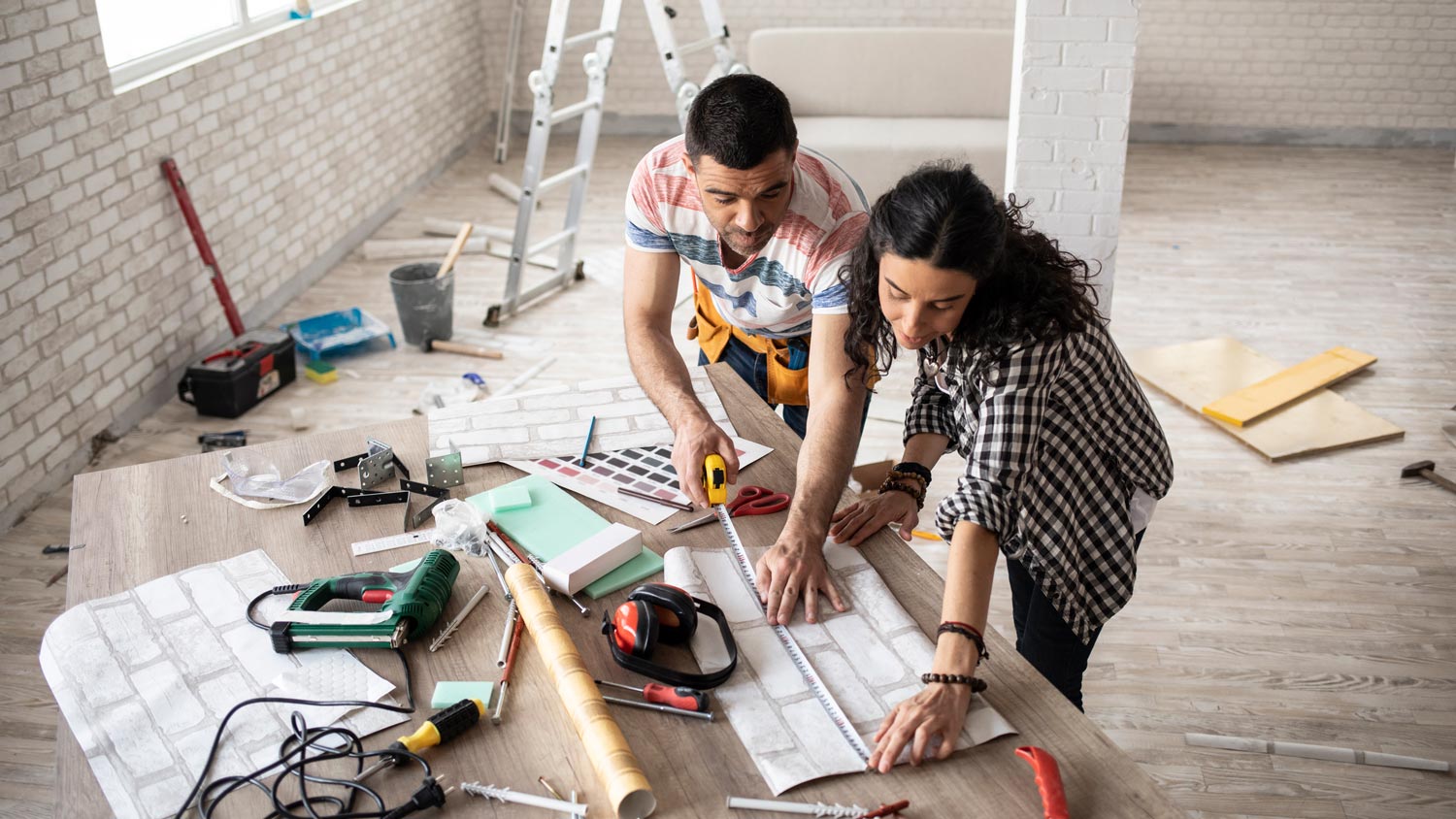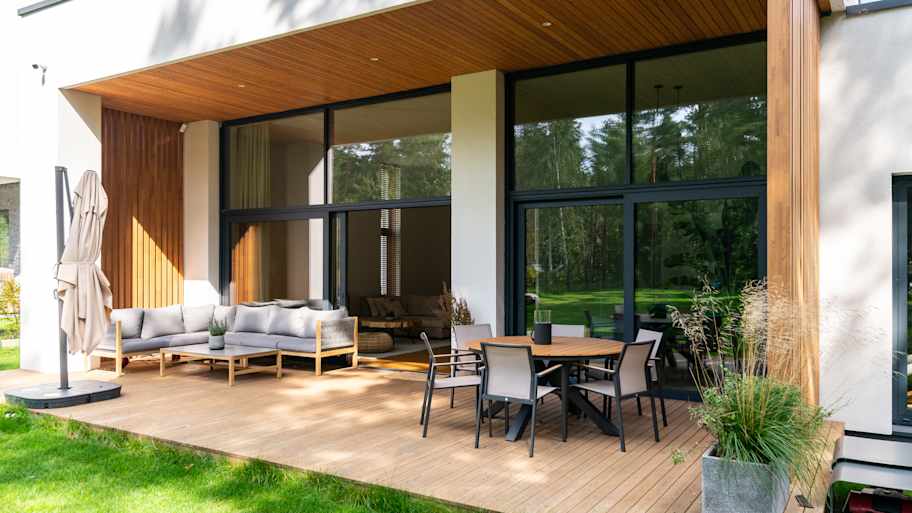
Winterizing a house depends on its type, size, location, and more. Our guide breaks down how much it costs to winterize a home.
The cost for a curved stair chair lift typically ranges from $9,000 to $20,000, with an average of $13,000.


Installing a curved staircase chair lift for a standard staircase (10 to 14 steps) costs $9,000 to $12,000.
Hiring other contractors, such as electricians, painters, or carpenters, may incur additional rates ranging from $20 to $125 per hour.
Removing existing stair railings costs $70 to $150 per hour.
Custom rail designs can add $1,000 to $5,000, depending on the number of turns and staircase length.
Curved stair chair lifts usually cost $9,000 for basic lifts to $30,000 for lifts with premium features and materials. Most homeowners spend an average of $13,000. The final price you’ll pay depends on several factors, including the length of your staircase and the lift’s features. This guide breaks down costs based on these and other factors so you can budget accordingly for this helpful home update.
The size of your curved staircase affects how much the chair lift will cost. Generally, the longer the staircase, the more costly the lift since longer staircases require more materials, time, and labor to install the lift, driving up the costs.
| Staircase Size (Number of Steps) | Average Cost |
|---|---|
| 10-14 steps | $9,000 - $12,000 |
| 15-19 steps | $12,000 - $15,000 |
| 20-24 steps | $15,000 - $18,000 |
| 25-29 steps | $18,000 - $20,000 |
| 30+ steps | $20,000 - $30,000 |

Many curved staircase chair lifts offer customizable features that can influence the overall cost of the installation. These features are often geared toward increasing comfort, usability, and safety, but they come with added costs.
Power Swivel Seat: A power swivel seat helps users easily get in and out of the lift at the top or bottom of the staircase, boosting safety and accessibility. This feature can add between $500 and $1,000 to the total cost.
Custom Rail Design: Since curved staircases vary in shape and size, the rail typically needs to be custom-made. A more complex or longer rail design may increase costs by $1,000 to $5,000, depending on the number of turns and overall length.
Battery Backup: Battery backup ensures the lift operates during a power outage, providing added security. This feature typically adds $200 to $600 to the final price.
Larger Seat or Footrest: For enhanced comfort, you can choose a larger seat or footrest, which may increase the cost by $300 to $500.
Custom Upholstery: In some cases, you may want custom upholstery that aligns with your home’s aesthetic. This addition can add $200 to $800, depending on the fabric and finish.
There are often multiple pros involved in installing a curved staircase chair lift. At minimum, you’ll need a professional chair lift installer. You may also need to hire an electrician, carpenter, or painter depending on the project.
Hiring an electrician is essential to provide power for your curved stair lift. A qualified electrician will ensure that your lift has a safe and reliable electrical connection, preventing problems like power interruptions. Many chair lift installations require the following electrical tasks:
Installing an electrical outlet: $100 – $450
Adding a dedicated circuit: $570 – $1,000
Wiring for lift installation: $50 – $100 per hour
Chair lift installers specialize in fitting the track and chair to your unique staircase. They’ll ensure that the rail is precisely mounted, which is especially important for curved staircases as they typically require custom solutions.
Curved staircase chair lift installation: $1,000 – $5,000
Installing a curved stair chair lift often requires additional pros beyond an installer and electrician. For instance, you may need a carpenter to handle structural adjustments to your home, as well as a painter and a drywall repair specialist to address any wall damage that occurs during the installation.
Drywall repair person: $300 – $900
Carpenter: $75 – $125 per hour
Painter: $20 – $50 per hour
It’s also helpful to consider several additional cost factors that may be involved in a curved staircase chair lift installation, such as demolition and preparation work. In some cases, your quote for the installation will include these costs, but some pros charge for them separately.
In some cases, the installation of a curved stair chair lift may require demolition and prep work, especially if the staircase or surrounding areas need structural adjustments. For instance, if you have an existing handrail or any obstructions on the staircase, they may need to be removed before installation. Additionally, preparation work such as reinforcing the staircase or adjusting wall structures may be necessary.
Stair railing removal: $70 – $150 per hour
Debris removal and disposal: $130 – $400
Installing a stair lift may require permits, particularly if structural changes or electrical modifications are involved. While the need for permits varies by location, it’s typically the responsibility of the contractor to obtain the necessary permits. However, you should check with your local building department to confirm the requirements.
Electrical work permits: $75 – $200
Building permits for minor structural alterations: $150 – $500
The layout and accessibility of your home can significantly affect the overall cost of the chair lift installation. For example, if the staircase is in a tight or difficult-to-reach location, such as a narrow hallway, the installation may be more complex and labor-intensive, driving up costs.
Additional labor for difficult-to-access staircases: $500 – $1,500
Installing a curved staircase chair lift is a highly specialized project that involves custom fabrication, electrical work, and precise fitting to the unique curvature of your staircase. While the idea of saving on labor costs might seem tempting, DIY installation is generally not recommended due to the project’s complexity, safety risks, and potential for costly mistakes.
Whether you should repair or replace a curved stair chair lift depends on several factors, including the lift’s age and the extent of damage.
Curved stair chair lifts typically last 7 to 15 years with proper care and maintenance. If your lift is approaching the end of its lifespan and it’s frequently malfunctioning, it might be more cost-effective to replace it to avoid additional costly repairs and ensure the long-term reliability of your lift.
For minor issues, such as replacing a worn-out battery or fixing a broken motor, repairs are usually the best option. However, if the lift has major damage, such as significant wear to the custom rail system or repeated motor failures, replacing the unit may be the more practical solution.
If your chair lift is still under warranty, repairs are often more cost-effective, as most warranties cover major components for a few years after installation. If the warranty has expired and repair costs are adding up, replacing the lift may be best, especially if future repairs are likely.
When repair costs exceed 50% of the replacement cost, replacement is usually the better option. This rule applies especially if your chair lift is older and nearing the end of its useful life. Replacing the lift not only typically provides newer technology and enhanced safety features but also often comes with a new warranty, which can help you avoid future repair expenses.
Adding a curved staircase chair lift is a significant investment, but there are several ways you can potentially decrease the costs of this project without sacrificing safety or quality.
Opt for a basic model: While premium models come with additional features like custom upholstery, power swivel seats, and larger footrests, choosing a basic model that still meets your mobility needs can significantly reduce costs.
Prepare the area yourself: You can save on labor costs by doing some of the preparation work yourself, like removing handrails and clearing obstructions. Just make sure to avoid tackling anything structural without consulting a professional first.
Consolidate installation services: If you need additional electrical or carpentry work done, try to schedule it during the chair lift installation to save on separate labor fees. For example, if an electrician is needed to install an outlet, have them handle other minor electrical updates at the same time to reduce the need for them to come out to your home a second time, which increases costs.
Consider pre-owned or refurbished lifts: Some companies offer refurbished curved stair chair lifts, which can be a more budget-friendly option. These are typically used models that have been reconditioned and are sold at a lower price than new units.
Limit structural changes: When possible, work with the existing layout of your staircase to avoid spending money on major structural changes.
Installing a curved staircase chair lift is unlikely to increase the general resale value of your home since it appeals to a limited market of buyers who need accessibility features. However, in markets where aging-in-place and accessible living are prioritized, such as communities with a higher concentration of older adults or people with disabilities, a chair lift can enhance your home’s value and make it more competitive.
Home is the most important place on earth, which is why Angi has helped more than 150 million homeowners transform their houses into homes they adore. To help homeowners with their next project, Angi provides readers with the most accurate cost data and upholds strict editorial standards. We extensively research project costs to develop the pricing data you see, so you can make the best decisions for you and your home. We rely on reputable sources, including the U.S. Bureau of Labor Statistics, academic journals, market studies, and interviews with industry experts—all to ensure our prices reflect real-world projects.
Want to help us improve our cost data? Send us a recent project quote to [email protected]. Quotes and personal information will not be shared publicly.
From average costs to expert advice, get all the answers you need to get your job done.

Winterizing a house depends on its type, size, location, and more. Our guide breaks down how much it costs to winterize a home.

When your home project requires a professional at the helm, how much are construction management fees, and how do they determine their rate? Let's break it down.

Home elevator costs depend on the size and type of lift, if it needs retrofitting, and the number of floors. Our guide outlines all residential elevator costs.

A general contractor is an essential but costly part of a construction project. Learn how to be your own general contractor for your next home improvement project.

Deciding between using cedar vs pressure-treated wood for your outdoor project comes down to budget, appearance, durability, maintenance, and other factors.

Learn what’s possible and what your options might be when considering ways of raising the ceiling height in a room or your entire house.